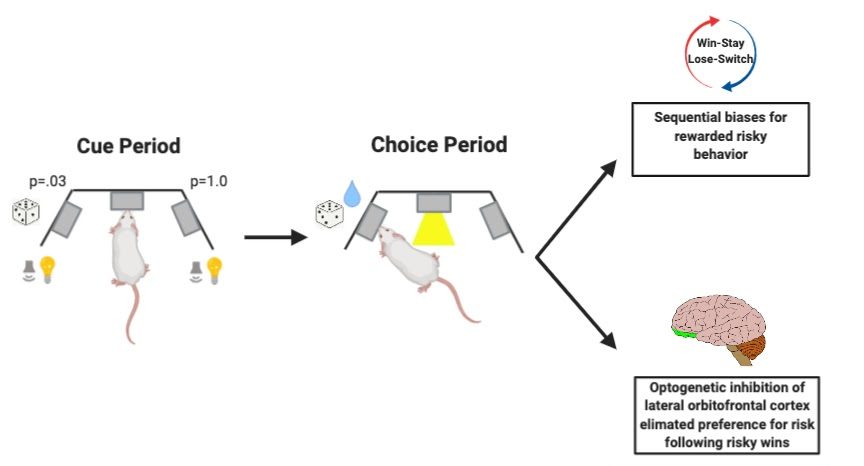Review written by Renee Waters (PSY)
Humans tend to make individual choices based on a series of past experiences, decisions, and outcomes. Just think about the last time you had some terrible take out: you might decide not to eat at that particular restaurant again based on your previous experience. Maybe, you take the same route to work every day because, in the past, there is less traffic on this particular route. The effects that past experiences have on choices are often termed sequential biases. These biases are present everywhere, especially in value-based decision making. You might wonder, what are the neural mechanisms driving this phenomenon? Christine Constantinople, a former postdoc at Princeton University and now an assistant professor at NYU, began to explore this question along with colleagues in the Brody Lab at Princeton.
Continue reading
